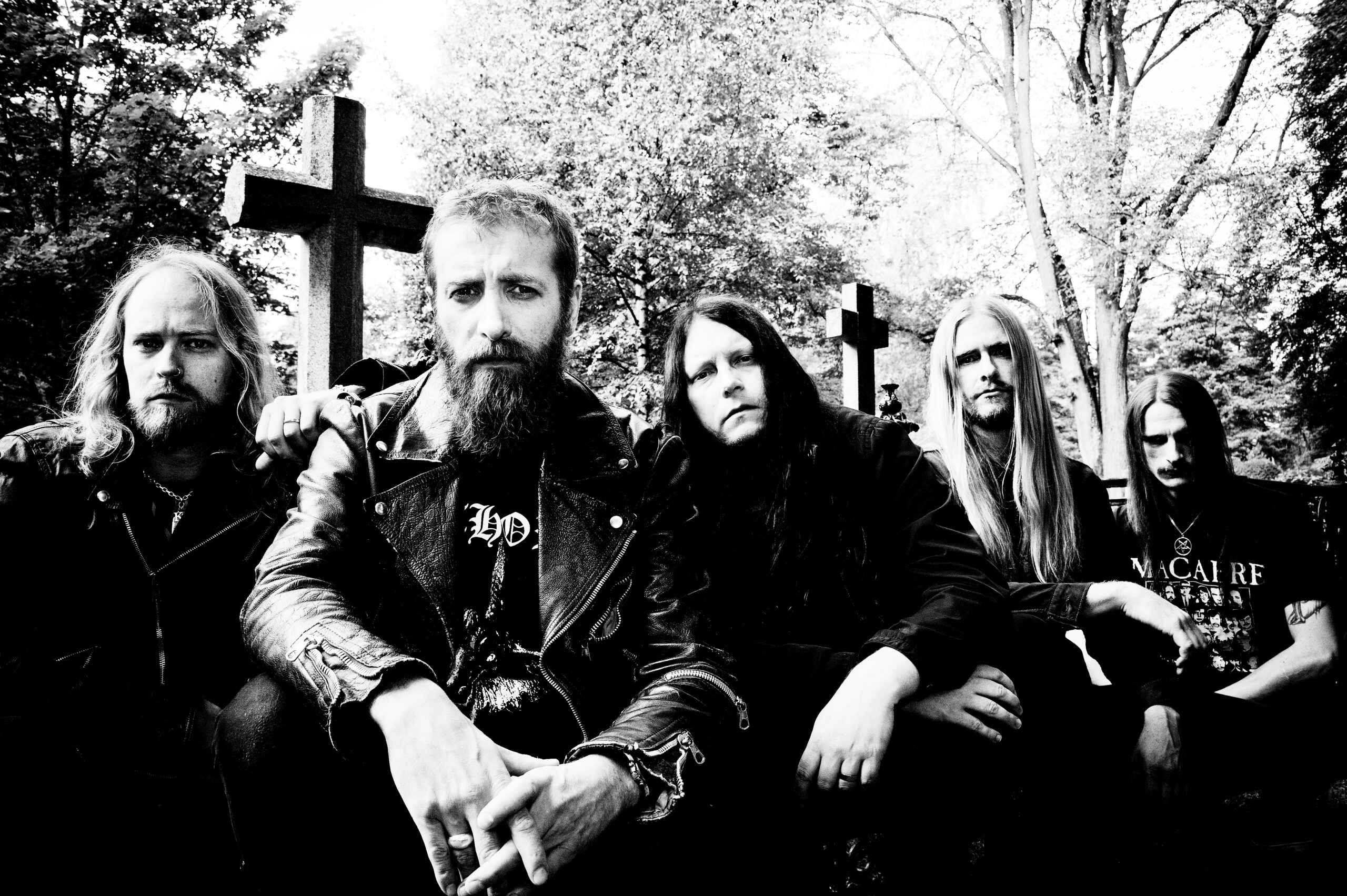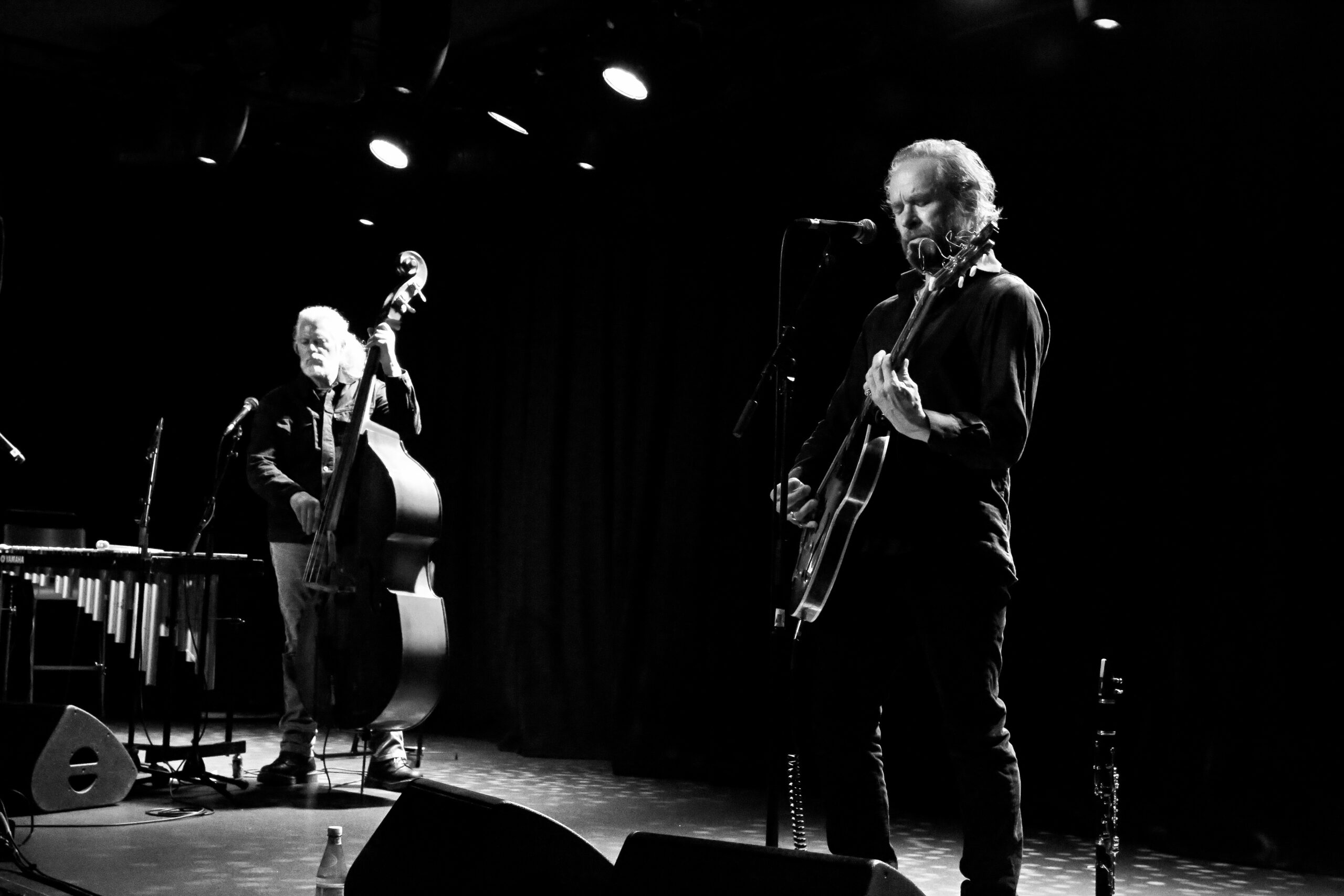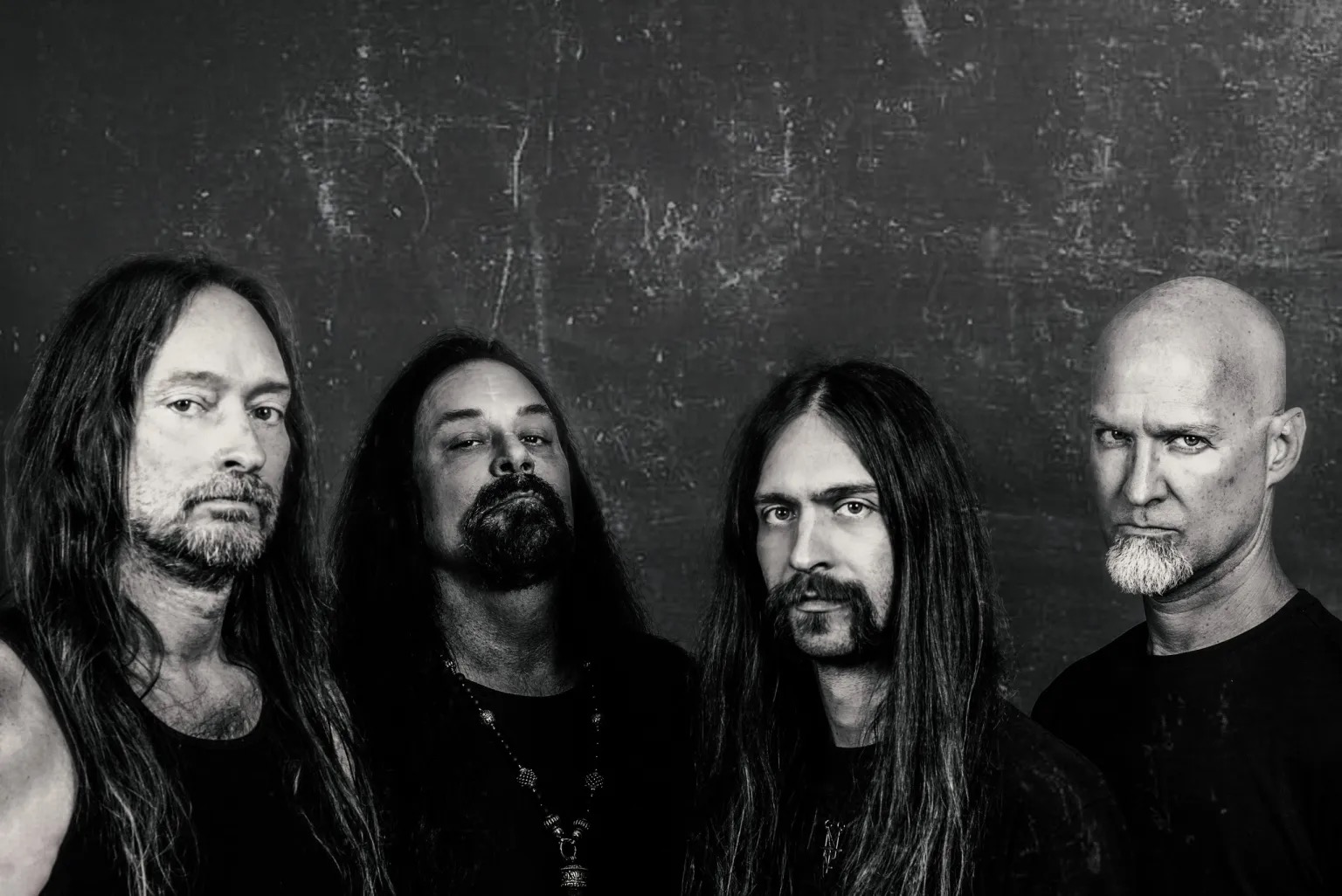Kirk Fletcher has a smile that lights up the room and an easy manner that makes interviewing him less an interrogative chore and more a conversation between two music fans. That his manner should be so light is hardly a surprise when you consider his latest album, My Pathway To The Blues, a glorious journey through Kirk’s influences that stands as one of the best blues records of the year. Speaking from his home in Switzerland, where he’s lived for the last four years, Kirk is engaging and gregarious, discussing the influences that led to his latest work, the challenges of a world currently dealing with a crisis and the joy of sharing a stage with Joe Bonamassa at Red Rocks.

Greetings from locked-down Leicester, we’re still in plague centre here!
Ooooh man! Leicester? Lock down – I know all about that tune!
I see the news has made it over to Switzerland!
Yeah, yeah – it’s crazy. You know, I was planning on coming over there sometime, just to kind of hang for a little bit. Just three or four days to visit friends and stuff, but for now? I’ll wait a little time longer.
So, how did you end up in Switzerland?
I fell in love with a girl and the music, and it’s easy to get to different places – you know, it’s kind of centrally located. A little of everything you know.
It’s such a lovely country – a friend and I did a road trip from the UK to Italy and we drove along the border, through the Alps and it was just beautiful.
Yeah, it’s a lot of fun and the contrast of coming here from Los Angeles California, I guess means you can appreciate it in a slightly different way.
So, how long have you been there?
Three or four years!
It’s difficult to relocate, I think – the first couple of years, you find yourself trying to figure out the local customs and so on… have you found that?
Yeah, I’m sort of a homebody, so wherever I am, it’s sort of all the same in a way. I kind of stay at home, play records, play guitar, go to the market… you know, but we’ve been adventurers, obviously. She’s from here, so we’ve been to the mountains a little bit and visited relatives of hers and it’s been cool!
That’s so cool!
Yeah.
I’ve spent the last couple of days listening to the record and it’s been a real pleasure, so I’ve been really looking forward to talking to you…
Awesome man!

So, one of the first questions I have, and it’s one I ask a lot when speaking to blues artists, is that blues has a great tradition of artists playing tribute to their roots and, because this album is half original and half covers, my first question is how you go about finding covers that you felt you could put your own unique stamp upon?
Well, you know, that’s a great question actually. For me, it’s really, really hard to pick covers because there are so many blues songs that I love, and I know… so I really just kind of went for something that meant something in a certain way. The Chris Cain cover I did – Chris is a friend of mine; I always loved that song. The A.C. Reed, I’d Rather Fight Than Switch, is just a funny spin on his perspective of blues, you know… the late, great A.C. Reed. So, it was just covers that I could kind of like grab a hold of and feel a certain way about them – they just moved me in a certain way and I’m sure on my next record, I’ll even incorporate some more because it seems like there’s a lot of emphasis on doing all original material, but all of my heroes did covers, so I’m like “why can’t I do some covers?” you know? That’s really it.
You can learn a lot from doing covers, especially if you try to engage with them in your own unique way, there’s a learning process that’s really exciting, I think…
Yeah! It’s my first time, because I’m sort of a baby at song writing and singing and all that stuff. I grew up playing a lot of blues, straight ahead blues and I never really recorded for myself, apart from my first couple of records, so it’s really been twenty years since I last did straight blues on a record. So, it was just really fun and exciting to come full circle. The pathway led back to blues!

I like the idea of paying tribute to what went before, because one of the things that’s always appealed to me is the community of the blues….
Yeah! Yeah, absolutely… the community is amazing, and I really still feel a big part of that community and my friends, my lifelong friends, I consider a lot of those guys family. Just talking to people like Charlie Musselwhite who played harmonica on the old acoustic track, that’s my old boss and just talking to him and making plans and… Taj Mahal, I talked to Taj Mahal a little bit and it was great to just talk to some of my old friends, you know.
I love it, there’s such a generosity of spirit and artists willing to work together, just to make the music better, not to be in competition in one another… that’s so cool!
Yeah, absolutely. It’s a fun little network of people from all walks of life.
I was looking at some interviews that you did in the past, and it was only on My Turn that you sang, is that right?
Yeah, absolutely.
Do you find it challenging dealing with lead guitar and singing at the same time – I imagine it’s emotionally quite hard.
Yeah, that’s true! I totally understand that! But, the more you do something, the easier it becomes in a way. It’s funny because when I really started singing, I wasn’t doing as many gigs. When I really decided to really start singing, so every time was like a new experience. So, it was a longer process than normal. If I had started singing, you know, fifteen / twenty years ago, I would probably be better. Because I would play three / four / five nights a week. Everybody told me I should start singing back then, but I just wanted to play guitar!
You described Hold On as being the first record that was purely for you… was that just proving that you could sing and play and do all those things, was that what you meant?
Absolutely. That’s why it wasn’t necessarily a typical blues record. I just wanted to write songs – whatever came out – and try to put together a record. Hold on was just like the first time that I wrote primarily, pretty much, all the songs and arranged the music and all of that kind of stuff. I had to prove to myself I could actually do it. That’s a very heartfelt record. It’s a very sentimental record to me.

That was a three-piece – you and Jonny Henderson and Matt Brown on drums… so all the pressure is on you with the guitar and vocals and very little behind you…
Yeah – we did it as an organ trio. Not in a jazz way, but as a trio because I like limitations. I don’t know if it’s weird, but I like songs all stripped down. I always strip everything down to its simplest form.
It can be very easy, especially in the studio, to keep adding layers and get carried away… so I guess that’s a very authentic approach that you’re taking there.
Aaaaw, thanks. To me it’s a lot of fun. Just stripping down everything breeds creativity. I actually like things really simple, then I can build on that really simple foundation.
You say it’s a lot of fun, and listening to the new album, you can hear that coming out and I think that’ s very special in any record – when you can hear the musicians having fun…
Absolutely. We still took a lot of things from the Hold On sessions… well, I did, as far as arranging the music and, you know, different things played really stripped down. But I did add horns and some keyboards and stuff like that, to make it a little dressier.
Yeah! There’s a lovely Clapton Journey Man vibe on the opening track (I’m sorry I can’t remember the name…)
Yeah, Ain’t No Cure For The Downhearted!
That’s it – yeah…
Yeah, Ain’t No Cure For the Downhearted, yeah. I actually got that beginning riff from a little thing that I heard Robben Ford do. Just that opening riff and then I was kinda going for a Robert Cray kind of thing there, and of course, Clapton is just the man – yeah.
Robert Cray is a huge favourite – Robert Cray played just up the road in Nottingham and I think it was for his fortieth anniversary, which is just amazing, because he looks about twenty years younger than that…
Hahahah – Totally man! I don’t know how he does it!
So, this time round it’s a different band, right?
It was some guys from California, I recorded the album in California, so yeah – Travis Carlton on Bass on all the tracks, apart form the acoustic thing. David Kida on most of the drums and then Lemar Carter on a few tracks too. Then I used my friend Jeff Babko, a fantastic keyboard player, to play all of the different keyboards. Then on horns, there was Joe Sublett and Mark Pender, so yeah, that was me playing different guitars, you know.
The album was recorded around a number of different places – was that the core trio tracking live and then the other musicians bringing in the other elements?
We recorded everything in LA. All the basic tracks were recorded in Alan Hertz’s Hertz Workz Studio in Van Nuys, I think it’s Van Nuys. We did all the basics there, then we did a few vocal overdubs at my friend’s place. Just different places for overdubs, guitars and horns… so, yeah, the basic tracks all together.
I always find going into the studio is so exciting, because you never know how it’s going to go….
Totally. It was a lot of fun, though. I got to play with my friends, you know. Yeah.
Around about the time that you did Hold On¸ no, it was back even further than that, you did that amazing Red Rocks show with Joe bonamassa….
Yeah, that was a few years before that. Hold On was 2018 and I did Red Rocks in 2016… that was a lot of fun.
That venue is just stunning – we’re so jealous of that!
Oh yeah, it was so amazing. Just to go there is amazing and to play there… and to play there too is fantastic.
With the album coming out in September…
September 25th…
Obviously, with everything has come to a screeching halt… how have you coped with lock down?
Well, it’s kind of crazy, because at first, I lost my mind, like “oh my god, what am I going to do?” And then, through the strength of friends and loved ones and the strength of my dear lady, they pulled me out of my funk a little bit and I was up for the challenge! I thought “I’m going to do this my way; I’m going to figure out a way to make this work!” Because I play blues, it’s all about survival anyway! So, what I did was I just started doing videos on YouTube (follow Kirk’s channel here). I just started talking about the things I love, and it was so gratifying and so moving to hear that people appreciated that. That’s basically what you’re doing when you play on stage. It’s not to show off, it’s about “hey! I’m excited about this music, I want you to be excited about it too!” And that’s it! If I could do little content videos and posts and do a little bit more social media type stuff, you know, it’s a win-win and I can still play my guitar and listen to a lot of records, because I’ve always done that, and I’ve kind of gone back to being a kid again in a way – just putting on my headphones and getting lost in the music that inspired me in the first place.
I know exactly what you mean. That’s what happened with us – I just went back to being fifteen again, too young to go to festivals and just playing records…
Absolutely – I revisited so many old blues records and just soul music and everything, you know.
It’s so cool, and it’s great to reconnect because the world goes really fast and if you can listen to some great music, the world stops for a little while…
Yeah, absolutely, the world does stop and when you put those headphones on and put on a record or something like that, it takes you back, if you’ve heard the music before, it takes you back to where you were when you first heard it and you can read a book or something like that and you can put on more records… so it’s been crazy and it’s been scary and just weird. But it’s also been like a whole new outlook on things and what’s important to me – how I feel about music and everything. It’s crazy, because I never would have thought that I’d try to do videos every day for a few months. I’d have thought “oh, I don’t want to do that!” but it really turned it around and it really made me open up to a whole different thing and I do the videos my way! It’s not like “oh you have to talk about this…” or whatever. It’s just my way, so that’s cool – you know!
I just have one last question, which is to do with the way the album flows and the way Pathway goes through such a great journey and then ends on that acoustic track, Life Gave Me A Dirty Deal and it basically brings us back to the earliest blues, right?
You know, that’s the thing. It’s my blues pathway. Maybe the more modern blues is the thing that got me into it, and I think that No Cure For The Downhearted is about the most modern sounding song, and that opens the record. Then it goes right down the pathway to the country blues. I’ve purposely tried to space records, so you don’t get redundant. It takes the listener on a journey, like those records that we love – they’re for us.
It’s exactly that – that journey. And to have you guide us through your influences is a great experience.
Yeah, they’re all on there. It’s a lot of fun.










Leave a Reply